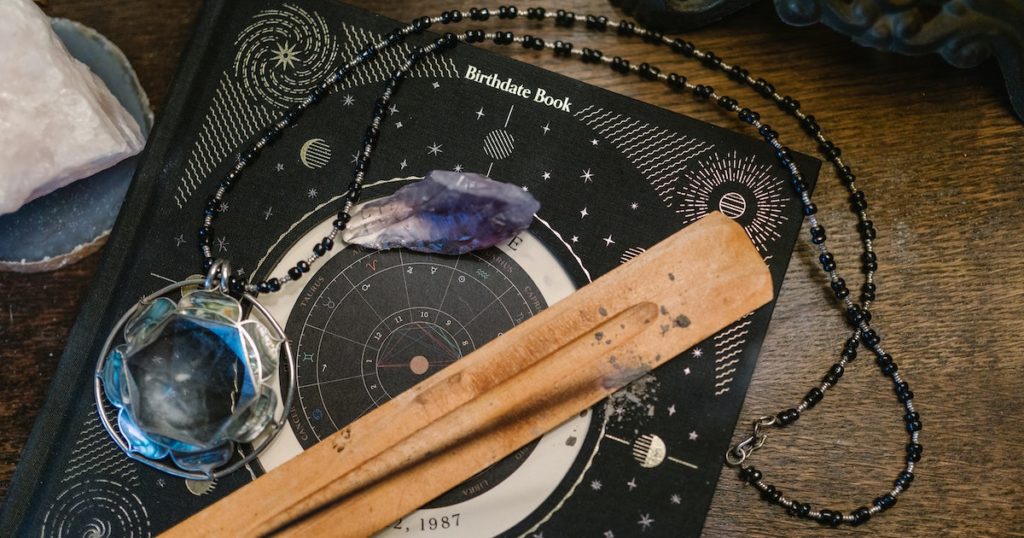Although most of us would associate astrology with the horoscope pages of tabloid newspapers, astrology is in fact an ancient discipline that has been present human history since records began. Until the 18th century, astrology was considered an academic scientific discipline. However, due to shifts in the definition of “science,” astrology has, in more recent times, been relegated to the realms of pseudoscience.
Our ancient ancestors lived under a starry night sky and it is therefore inevitable that they would gaze at the stars and the planets with great wonder, assigning divine and mythological significance to celestial events. However, astrology was much more than just stargazing; it was a comprehensive discipline that guided many aspects of daily life, from farming and medicine to religious calendars and marital matches. The role of celestial events in steering life on this planet was was in no doubt for our ancient ancestors.
The Role of Astrology in Ancient Cultures
The roots of astrology trace back to ancient Sumeria in the 3rd century BCE, with extensive evidence of the practice of astrology in Sumeria found in the 2nd century BCE in the form of the Enuma Anu Enlil, a collection of over 7,000 celestial omens inscribed on 70 cuneiform tablets.
The practice spread to India and Arabic cultures and further developed in Greece in the Hellenistic period. The study of astrology thrived in Alexandria under the rule of Alexander the Great and became divided into 2 separate disciplines, Horoscopes to predict a person’s fate on earth whilst theurgic astrology was a discipline dedicated to enlightenment and a connection with the gods.
Chinese astrology, originating from the Zhou dynasty (1046–256 BC), focussed on celestial movements during one’s birth year rather than the month. Each child would have their horoscope read at birth and then again ahead of major life decision. There are various variations of Chinese Astrology in other parts of East Asia.
Influenced by the Greeks, astrology also played a pivotal role in ancient Rome and the Arabic world, where Baghdad succeeded Alexandria as a center for scholarly learning. Islamic scholars, increasing their knowledge of astrology by combining with mathematics had a major influence on European scholars in the middle ages and in fact many of the names we use today for stars can be traced back to Arabic Astrology.
From the middle ages up until the 18th century, Astrology was a very academic discipline, closely linked with Mathematics and Physics. It was also one of the core 4 subjects forming the The Quadrivium, an educational curriculum dating back to the Ancient Greeks and mandated in all monastic schools, consisting of arithmetic, geometry, music, and astrology.
The Role of Astrology to Predict Historical Events
Throughout history, astrological events have been used to predict outcomes and events on earth. Famously, astrologer Richard Edlyn used Astrology to accurately predict the Great Plague in 1665. According to an article published by Michelle Pfeffer, astrology was used to predict illnesses that were likely to affect regionalised populations. Astrologers would publish and distribute these predictions on almanacs that were distributed across Europe from the 15th century onwards. According to Pfeffer, the practice of using astrology to predict the health outcomes of populations dates back to the a textbook published by Roman astrologer Claudius Ptolemy in the 2nd century BCE.
Nostradamus, One of the most infamous astrologers of all time used celestial events to make many accurate predictions about future history such as the rise of Hitler, the French Revolution, the assassination of John F Kennedy and the 9/11 terror attacks on the World Trade Centre.
The Influence of Astrology on Carl Jung
In more recent times, renowned psychiatrist Carl Jung used astrology to gain a deeper understanding of his patients and their psychological issues. His work has inspired subsequent generations of psychological astrologers, including Dane Rudhyar, Bruno and Louise Huber, and even the widely popular Myers-Briggs Type Indicator, which uses the four elements of classical cosmology.
A Revival of Agricultural Astrology
In the modern era, there has been a resurgence of farming and horticultural practices in alignment with the astrological calendar. Pioneered by philosopher Rudolf Steiner and further developed by Maria Thun, planting and farming in accordance with the zodiac has become a fundamental aspect of biodynamic agriculture. While not entirely validated by scientific standards, there is widespread anecdotal evidence of the effectiveness of this practice. The Sustainable Food Trust reports that the Biodynamic Calendar is now in its 57th year, highlighting its continued success and popularity. Notably, even the London vegan restaurant Farmacy farms all produce according to biodynamic farming methods.
The Influence of Astrology on Modern Science
In his book A Scheme of Heaven: Astrology and the Birth of Science, Alexander Boxer explores the various ways in which Astrology has influenced much of our modern discipline of science. Boxer explains how Arabic astronomy led to a better understanding of geometry and mathematics and the modern scientific discipline of astronomy. He also list several words in the English language which are derived from astrological terms such as Disaster from the Greek for “bad star, Consideration from Latin: con sidus which means ‘to look upon the stars’ and Desire from the latin de sidus which means ‘of the star’.
A Resurgence of Interest in Astrology
An article by the BBC in 2021 reported a significant rise in the popularity of astrology among younger generations, who often turn to astrology to determine relationship compatibility, mirroring practices from ancient times. According to Google Trends, searches for “birth chart” and “astrology” reached five-year peaks in 2020. In 2021, a CBC article estimated the global astrological service industry to be worth over $12 billion, with expectations of growth to $22.8 billion by 2031. This surge in interest reaffirms the enduring human desire to comprehend celestial events and their impact on our individual lives, much as our ancient ancestors did. This trend is part of a broader paradigm shift in human consciousness as we seem to be transitioning into the Age of Aquarius.
